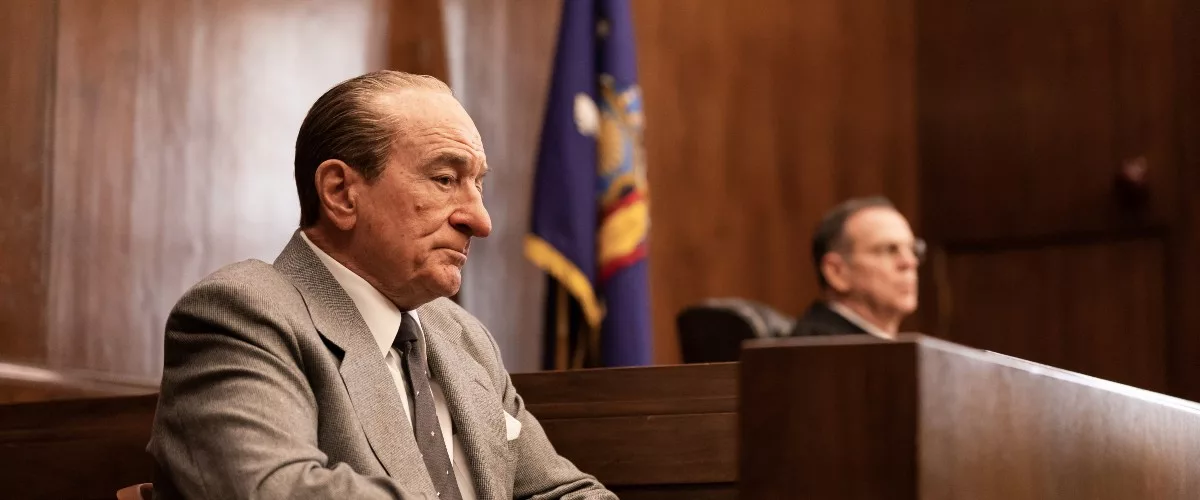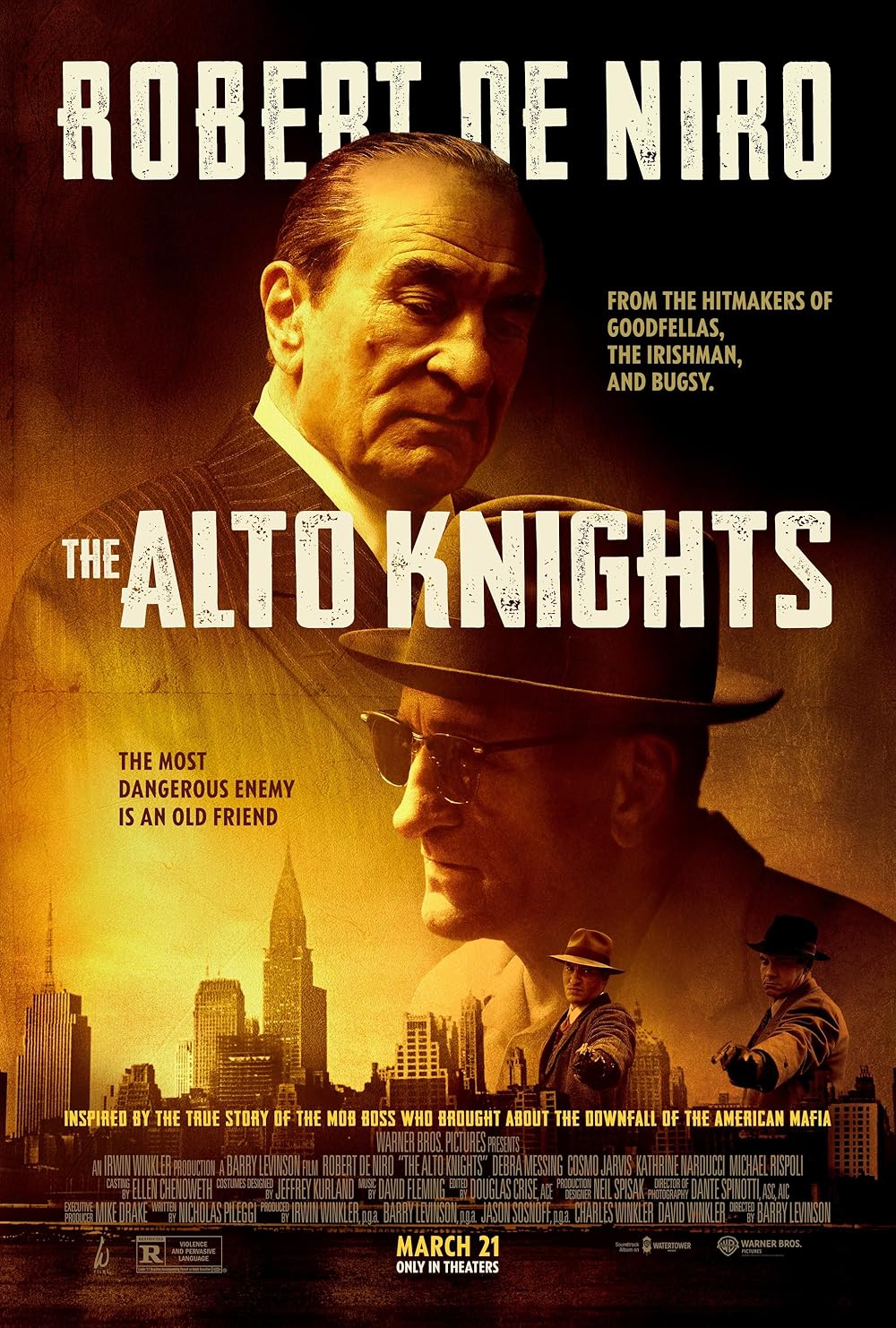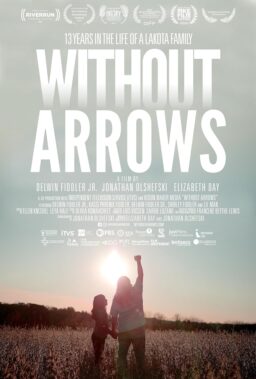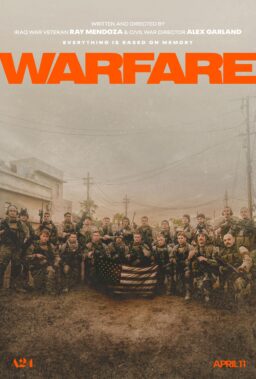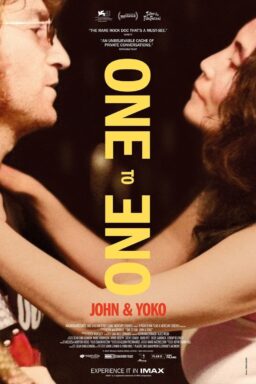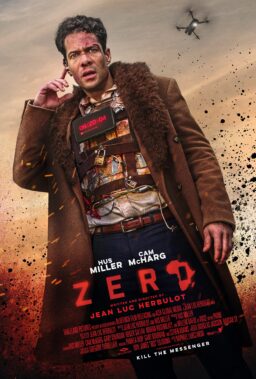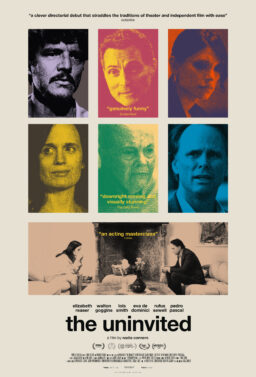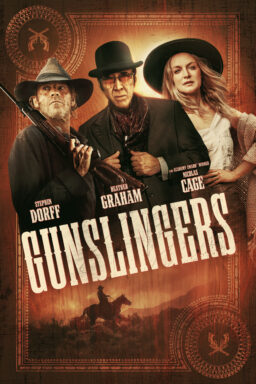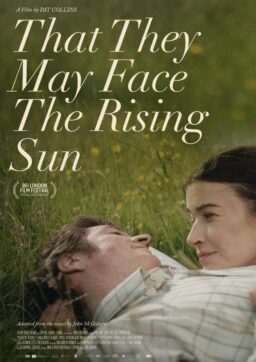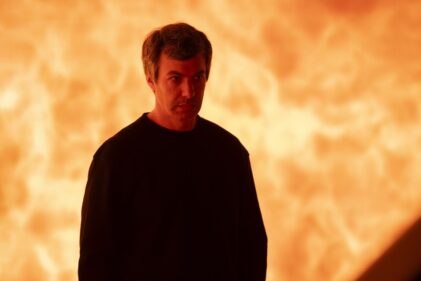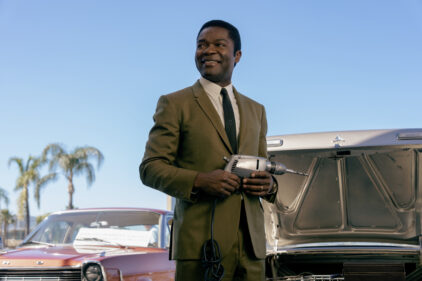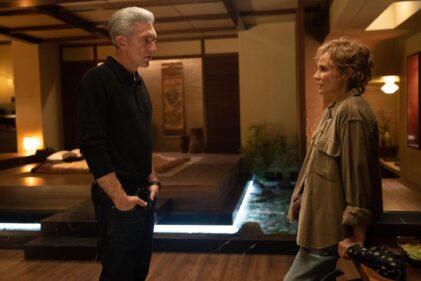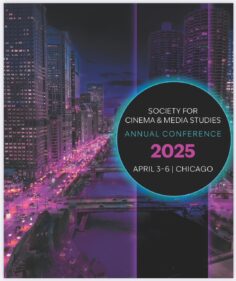It’s 1957, and mobster Frank Costello (Robert De Niro) exits out of a yellow cab and struts into a New York City highrise. As he waits for an elevator, his sleek grey suit and matching fedora catch one’s eye against the walnut interior of this building’s refined lobby. A canted angle of Castello’s reflection in double mirror panes gives an early visual wink to the twoness that’ll dominate Barry Levinson’s historical mob drama “The Alto Knights.” Levinson drills down on that duality when the mirror cracks from an assassin’s bullet, dispatched by Costello’s rival Vito Genovese (De Niro), suddenly whizzes past Costello’s head and makes impact.
De Niro has played the role of the level-headed gangster many times before, but the prospect of playing dueling characters in Levinson’s film was probably too much for the actor to resist. Despite the alluring premise, nothing in Levinson’s predictable and all-too-familiar films offers anything that feels particularly new. And while one could argue that we shouldn’t be expecting innovation from the now journeyman filmmaker—who’s fallen hard from his “Wag the Dog” heyday—and his venerated actor, the unimaginative rendering of “The Alto Knights” plays less like an ode to a genre than a wheezing retread.
Because let’s think about “The Alto Knights” in the context of De Niro’s career. This isn’t the immersion into the world of a fast-moving way of life like “Goodfellas.” It’s not the canvassing of a neighborhood like “A Bronx Tale.” Nor is it an anguished reflection on one’s crimes like “The Irishman.” Instead, Levinson frames his film closer to the spirit of “Casino,” wherein two longtime friends become enemies in the face of a changing landscape. Without the focus, soulfulness, and manic spirit Joe Pesci often provides in hotheaded roles, Levinson’s take is nothing more than an over-mannered slog.
In “The Alto Knights,” written by “Goodfellas” scribe Nicholas Pileggi, De Niro is Costello, the silent head of the Luciano crime family. If you’re well-versed in mob history, you already know plenty about Costello. Still, for the less informed, Levinson gives viewers some historical background on Costello by way of documentary-style filmmaking. De Niro, as Costello, narrates much of the film, with Levinson often cutting to Costello as a kind of talking head being interviewed about his past while he flips through black and white stills on a personal slide projector. Costello recounts how he rose through the ranks as a bootlegger before transitioning into becoming a political kingmaker through Tammany Hall. His best friend during this journey, the ruthless crime boss Vito Genovese, remained in the picture until he fled to Italy in 1937 to avoid a murder conviction. After eight years on the lam, he has returned to America to reclaim his power.
Because of films like “Casino” and “Once Upon a Time in America,” you could easily imagine the fractured friendship at the heart of Levinson’s film being a larger-than-life epic. In fact, the idea for “The Alto Knights” has bounced around in Hollywood since the 1970s when it was initially titled “Wise Guys.” Instead, “The Alto Knights,” which runs a hair over two hours, feels both truncated and overly stretched mostly because the partnership between Costello and Genovese isn’t thematically grounded. Rather than being a chapter in American history, like the forming of Las Vegas or the upward mobility of Italian immigrants, the dramatic crux rests solely on the bickering of two old men.
That modest centering of interpersonal drama by two catty and mischievous crime bosses would be highly entertaining if it didn’t require De Niro stretching himself far too thin. While De Niro as Costello does ably rekindle the unflinching business cool of Ace Rothstein, he struggles to harness Pesci’s specialty of making a fly-off-the-handle character like Genovese into a revealing foil. While you could blame the writing—to be sure, this screenplay provides way too much oft-repeated backstory—Genovese isn’t poorly written. On a character level, the differences between Costello and Genovese are apparent: the latter wants to sell drugs, kills indiscriminately, and is far too paranoid for his own good. De Niro’s performance simply doesn’t build on those characteristics. Instead, he continues to hit a single note, reaching for volatility even when the scene calls for significantly less.
Despite the period piece element to “The Alto Knights,” Levinson, opting for dutiful recreation, doesn’t instill the era with any spirit. Levinson, for instance, often shows Costello watching television: the news, “White Heat,” and “What’s My Line?” But it’s not altogether clear if Levinson wants to provide some visual commentary or is merely making references. One has to ask what cultural importance television plays in the closing chapters of these gangsters. What does it mean for your crimes to evolve from being captured in the headlines to being depicted in moving images? Levinson doesn’t necessarily have to answer these questions or any. But it would be good to know he’s thought deeply about what the genre either might’ve meant then or means now.
I wouldn’t go so far as to label “The Alto Knights” a bad movie. The period detail: suits, dresses, interiors, and cars—is resplendent; even in limited roles, Debra Messing and Kathrine Narducci as Costello and Genovese’s respective wives add flinty energy to the film’s dour repetition; there is a hardened quality to the film’s dynamic score too. Scenes of Costello testifying in front of the Senate or the doomed Apalachin meeting provide additional moments of intensity and wisecracking. But as a gangster film, “The Alto Knights” does little more than putter along, taking in very few new or interesting sights along the way.

